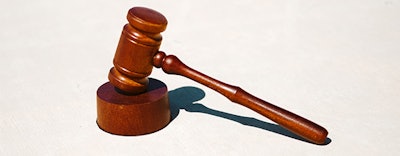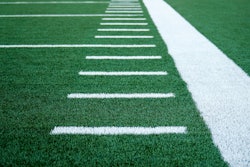
A former Washington high school football coach who was not rehired by the school district for conducting post-game prayers with his players on the field is appealing to the United States Supreme Court for vindication.
Joseph Kennedy, a retired Marine turned Bremerton High School football coach, began praying at the 50-yard line after every game, starting in 2008. Eventually, players began joining him, until a majority of the team was beside him. At least one parent, however, said his son felt “compelled to participate” for fear of losing playing time if he didn’t.
Kennedy’s post-game ritual eventually evolved into motivational speeches with religious references. He continued with the practice until in 2015 when the Bremerton School District took issue after an opposing coach told the district that Kennedy had asked his players to join Kennedy for a post-game prayer, saying he “thought it was pretty cool” the district would allow such activity.
After a review of Kennedy’s performance in 2015, the district declined to rehire Kennedy for refusing orders from the district to end the post-game prayer sessions.
Kennedy would eventually appeal to the courts, defending his right to pray with his players on the field. Kennedy argued that he was engaging in constitutionally protected religious expression.
The U.S. Supreme Court has now agreed to hear his case.
"It seems so simple to me: It's a guy taking a knee by himself on the 50-yard-line, which to me doesn't seem like it needs a rocket scientist or a Supreme Court justice to figure out," he told CBS News. "I didn't want to cause any waves, and the thing I wanted to do was coach football and thank God after the game."
That’s one way of looking at it. However, the school district saw Kennedy acting as an agent of the state who, as a public employee, violated the religious freed of students who felt pressured into prayer.
"When a coach uses the power of his job to be in a place and have access to students at a time when they're expected to encircle him and come to him, that's an abuse of that power and a violation of the Constitution," Rachel Laser, president and CEO of Americans United for Separation of Church and State, told CBS News. "Religious freedom is not the right to impose your religion on others. We all need to have it, so that's why the free exercise and establishment clause work together to protect religious freedom for all of us."
The district’s lawyers argued that Kennedy’s prayers could exposed the district to legal liability by their non-secular nature.
"Bremerton High School legally risks endorsing or favoring one set of religious views over others and that's not what the Constitution promises," Laser said. "Religious freedom, those 16 words of our First Amendment of our Constitution are a shield that protects religious freedom for all of us, not just religious freedom for some of us."
Kennedy temporarily stopped praying after games but in mid-October 2015, he informed the district through an attorney that he would resume praying after requesting a religious accommodation under Title IV of the Civil Rights Act, which prohibits discrimination on the basis of religion.
"No reasonable observer could conclude that a football coach who waits until the game is over and the players have left the field and then walks to mid-field to say a short, private, personal prayer is speaking on behalf of the state," his lawyer said in a letter to the Bremerton School District. "Quite the opposite, Coach Kennedy is engaged in private religious expression upon which the state may not infringe."
Kennedy eventually chose to reapply for his coaching position at Bremerton High School, and in 2016, filed suit against district in a federal district court in Tacoma, Washington. He argued that the district had violated his constitutional rights to free speech and free exercise.
According to CBS, U.S. District judge Ronald Leighton ruled against Kennedy, finding that "while public schools do not have unfettered discretion to restrict an employee's religious speech, they do have the ability to prevent a coach from praying at the center of the football field immediately after games."
After losing in a number of lower courts, Kennedy’s case will now be decided by the highest court in the land. CBS reports that a decision from the Supreme Court is expected by the end of June.





































